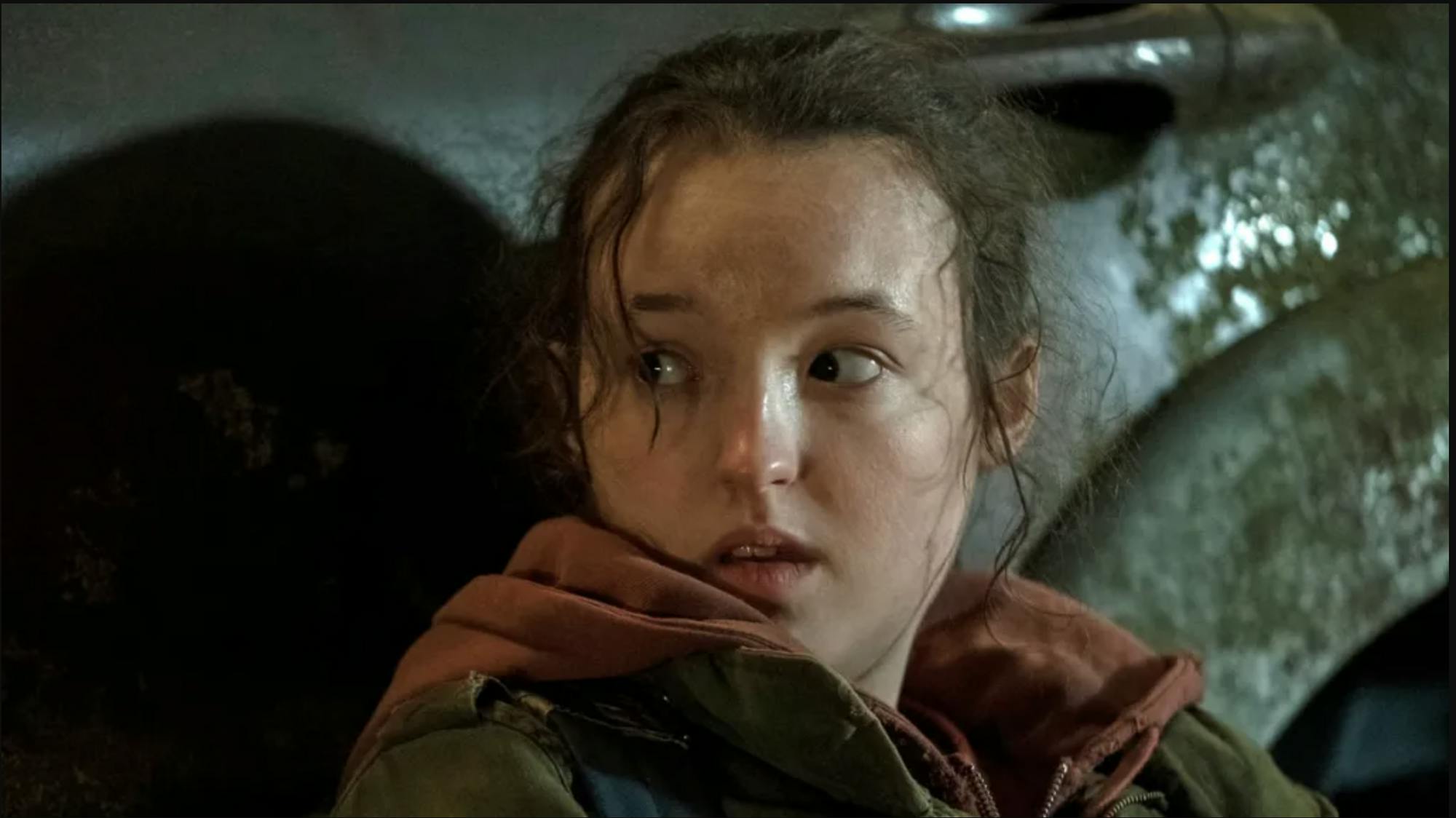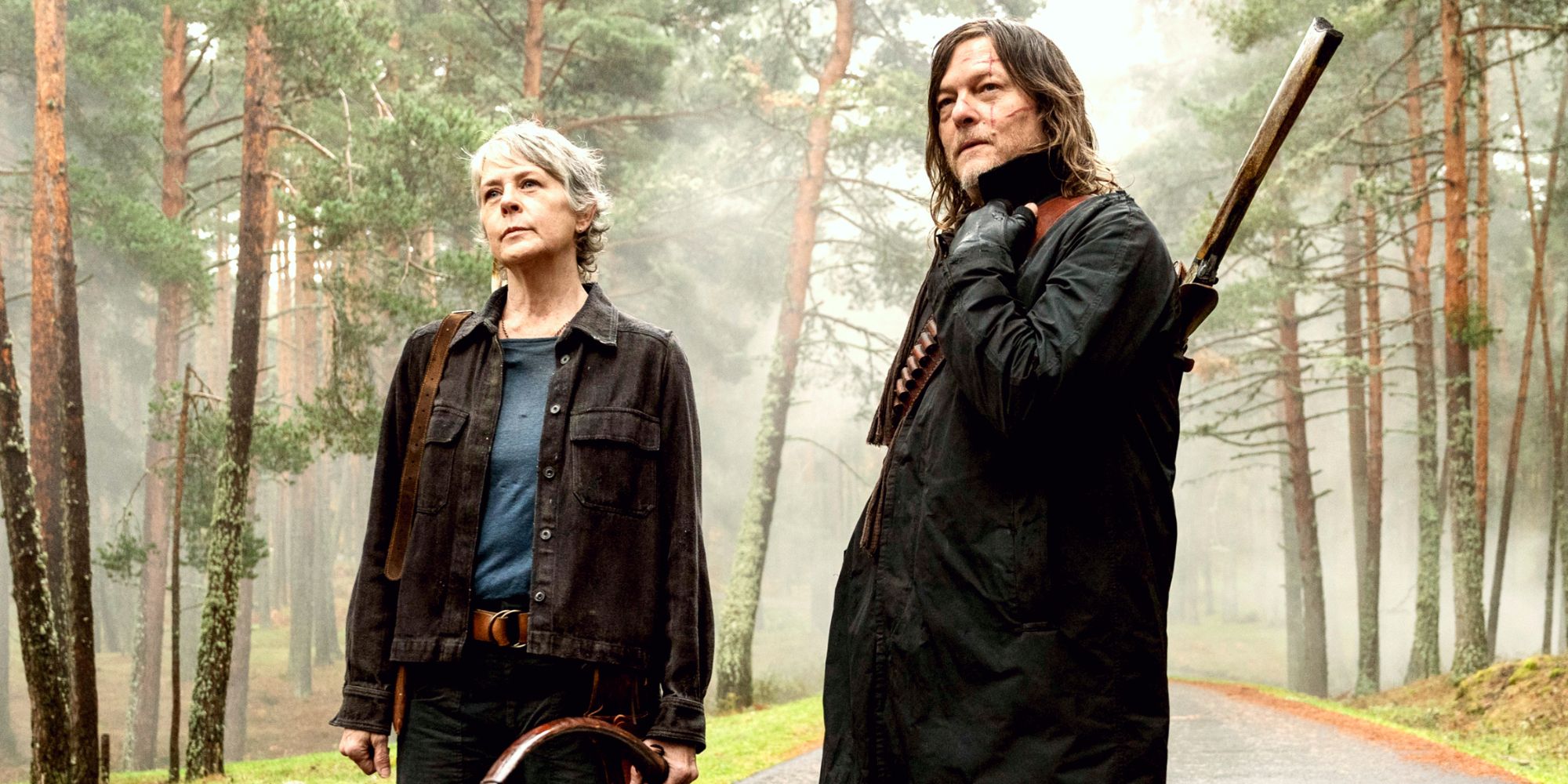‘The Last of Us’ and Toxic Fan Culture
A few weeks back, after seeing a remarkable number of reels hyping up the return of The Last of Us, I finally binged the first season of the acclaimed video game adaptation. With each episode, I found myself slowly falling in love with the chemistry between Joel (portrayed by Pedro Pascal) and Ellie (portrayed by Bella Ramsey), the lore of the post-apocalyptic world and the brilliant production design. I eagerly awaited the show’s return, grateful that I would not have to wait two years to watch new episodes like those who tuned in during the original release. However, I soon found my Instagram feed infiltrated by reels with a concerning topic. Specifically, users seemed intensely focused on criticizing the physical appearance of Bella Ramsey.

Before I continue, I should clarify that I have extremely limited experience playing games from the The Last of Us series. In high school, I briefly took turns playing through the beginning of the first game with some of my friends, but we obviously did not venture far into the main storyline after only an hour. Because of this, watching the television series served as my first exposure to the vast majority of the important characters and plot points of the video games, and I had only a few existing reference points through which I could examine the series' performance as an adaptation.
I highlight this because much of the criticism toward Ramsey has (according to the posts/comments I’ve seen) come from avid fans of the original series. These criticisms typically revolve around concerns that Ramsey does not physically resemble the character of Ellie depicted in the video game series. Upon first glance, this criticism does not seem overly harmful or unwarranted. From an objective standpoint, I would say that Ramsey and the video game version of Ellie have facial and hair style differences that are more pronounced than some of the show’s other actors. However, these criticisms often contain more malicious/inconsiderate ideas behind them, delivered in a quiet or overt manner.
The first issue regarding the criticism stems from whom fans are blaming for the perceived miscasting. Most of the less hate-filled posts online simply compare Ramsey and the video game version of Ellie, with the implication that Ramsey is somehow responsible for their physical differences. The grievances of these fans would be much better directed toward the casting directors for failing to cast someone who (in their eyes) better fit the role or the makeup/hairstyling crew for preparing Ramsey in an improper manner. And, in all fairness, I have seen some posts which do that. One post that stood out to me in particular featured two versions of a photo, one unedited and one in which the creator had digitally altered Ramsey’s hairstyle to better recreate that of Ellie’s. The commenters on the post also took a much more positive and constructive approach to their criticism, placing emphasis on hairstyling/makeup decisions rather than placing blame on Ramsey.
However, these issues in blame allocation represent just the tip of the iceberg when it comes to improper posts. Some of the most egregious content I saw online directly insulted Ramsey’s physical appearance, with posts and comments labeling them as not thin or muscular enough to depict Ellie. Many users claimed that Ramsey was not physically attractive enough to portray Ellie, which comes off particularly odd considering that Ellie is only 14-19 years old throughout the series. Other users did not even attempt to pose their concerning comments as criticism regarding the show’s faithfulness to the video game series. These individuals made appalling comments regarding Ramsey’s appearance on its own, displaying the rapidity with which somewhat-questionable points of criticism paved the way for blatant hate posting and mockery.
This online behavior is particularly concerning given Ramsey’s past struggle with anorexia. After the release of the first episode of season two, Ramsey revealed that they decided to quit social media, explaining that the differences between Ellie and their own physical appearance resulted in a great deal of anxiety regarding their role. These issues were only exacerbated by the fixation of social media posts and trolls on their physical dissimilarities. Clearly, this behavior has had an adverse effect on the emotional wellbeing of a human being. While I understand the desire of fans to witness their favorite pieces of media be put to the screen in the most faithful manner possible, the criticisms regarding Ramsey’s casting have too often traveled into the territory of hate posting and trolling. At the end of the day, the original video game series still exists for fans to enjoy. While fans have the right to be dissatisfied with adaptations, we must strive to direct criticisms in an ethical and proper manner.
The Walking Dead: Daryl Dixon Season 3 Review - The Zombie Western I Never Knew I Needed Is A Strong Return For Daryl & Carol

Daryl Dixon season 3 catches up with Carol (Melissa McBride) and Daryl (Norman Reedus) as they reach England following their harrowing journey through the Chunnel. It quickly becomes apparent that England has fared no better in the apocalypse – in fact, the island country looks to have fared worse than most. They meet the last Englishman in England, a delightful as always Stephen Merchant, and set sail for home. However, things soon go south, literally, as a storm wrecks their boat and washes them ashore in Spain.
The Spanish Setting Helps Right The Wrongs Of Daryl Dixon Season 2
A New Locale, Characters, & Challenges Create A Fresh Start

Initially, sending Daryl to France was the engine behind what made his spinoff the most exciting. It offered a global perspective on the outbreak, allowed the series to shoot in some stunning locations, and thrust Daryl into unfamiliar territory, both physically and emotionally. Season 2 was more of the same, but it was also hurt by needing to balance a stupidly complicated villain plot and the reintroduction of Carol, on top of continuing Daryl’s story with Isabelle and Laurent. It was too much story for the season’s six episodes, and the show lost focus on what worked so well the first time around.
It’s a very detailed and interesting world that Carol and Daryl enter.
The country is ruled by what remains of its royal class, reformed under the name El Alcázar. In return for food and weapons, towns are required to send their daughters as offerings, an Ofrenda, to El Alcázar, where they’re married off or made to work as servants. This patriarchal oligarchy has been in charge since the outbreak, and its customs have become familiar and tough to break. Add to this multiple roving gangs of bandits, bikers, and some revolutionaries, and it’s a very detailed and interesting world that Carol and Daryl enter.
Last, but certainly not least, the move to Spain allows for some truly breathtaking scenery and cinematography. Daryl Dixon season 3 really leans into a spaghetti western aesthetic, sometimes even filming in the same locations as those famous films. There’s one episode in particular that positions Daryl like he’s the protagonist of a Sergio Leone film, riding into town and fighting off the bandits who are harassing them. Things even get a bit Mad Max at one point, and it all feeds into giving season 3 a completely reinvented look from seasons 1 and 2.
Both Daryl & Carol Receive Meaningful Arcs In Season 3
The Franchise Veterans Get Some Great, Meaty Material To Chew On
A chance for McBride to really stretch the character she’s played for over a decade.
For Carol, this means reengaging with her nurturing side, while still not backing down from a fight when necessary. It’s she who gets to know the people living in and around the small Spanish town they wind up in, allowing her to build a new community not so unlike what Daryl had in France. While Carol’s interactions with Ash in season 2 were a nice change of pace, here she’s pushed out of her comfort zone even more, and the result is a chance for McBride to really stretch the character she’s played for over a decade.
As for Reedus’ Daryl, he doesn’t exactly take a backseat to McBride’s Carol in season 3, but his main arc is more subtly explored. While still grieving the death of Isabelle and missing Laurent, Daryl spends this season thinking back on his own childhood trauma and how it’s shaped his life. He’s given the time for this reflection during a stretch where he’s off on his own, and these episodes are the best of the whole season. In fact, as enjoyable as Daryl Dixon has been, I’d absolutely tune in for a series of Daryl just roaming the wasteland, rescuing a new community each week.





